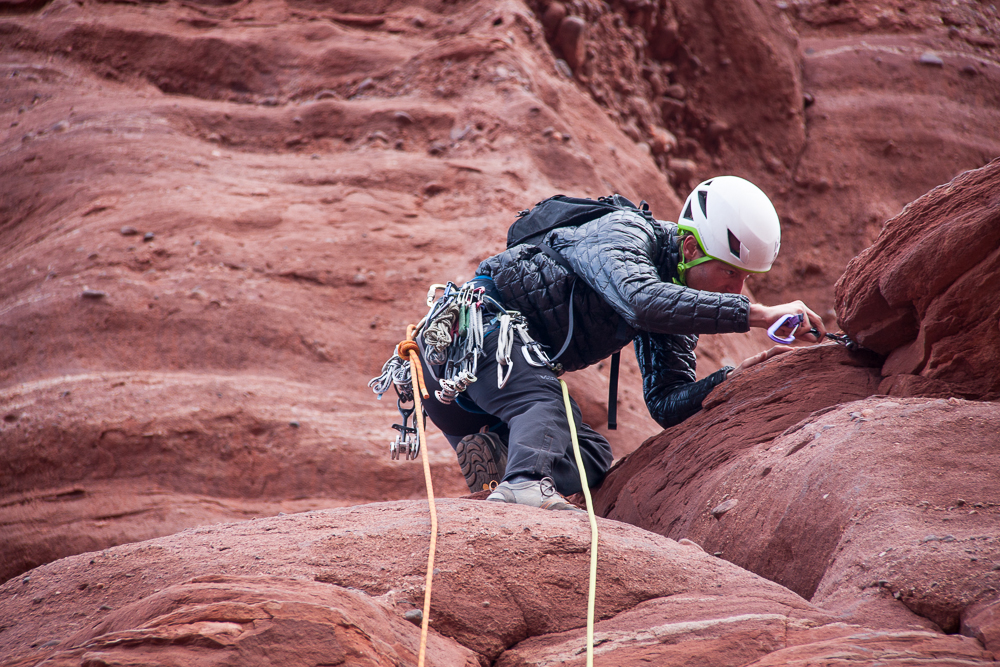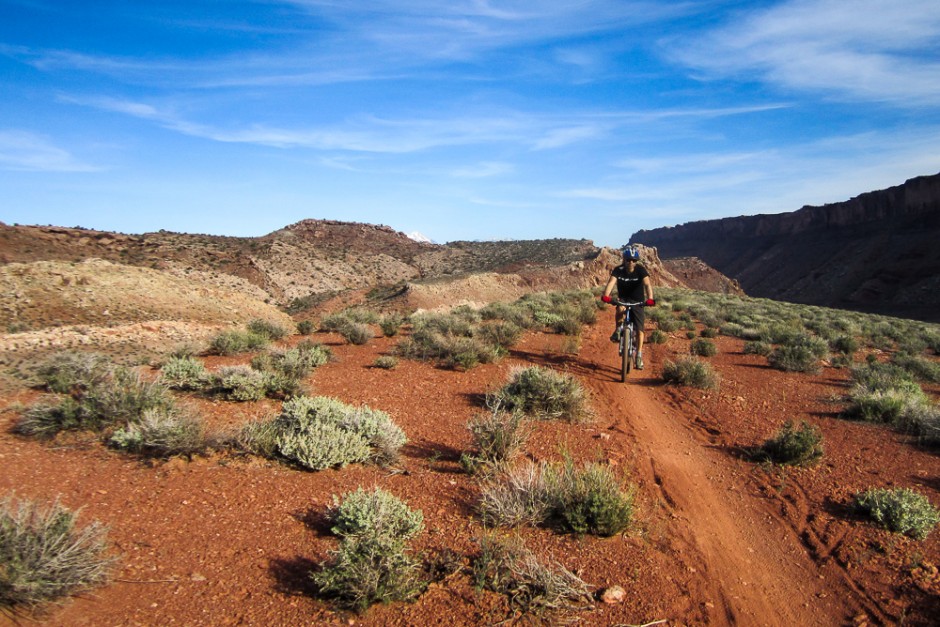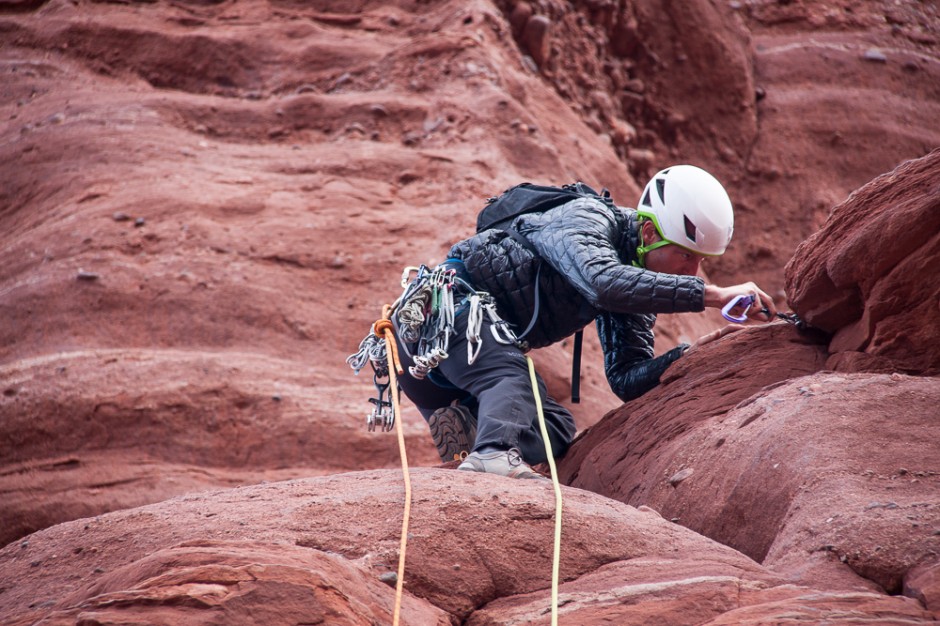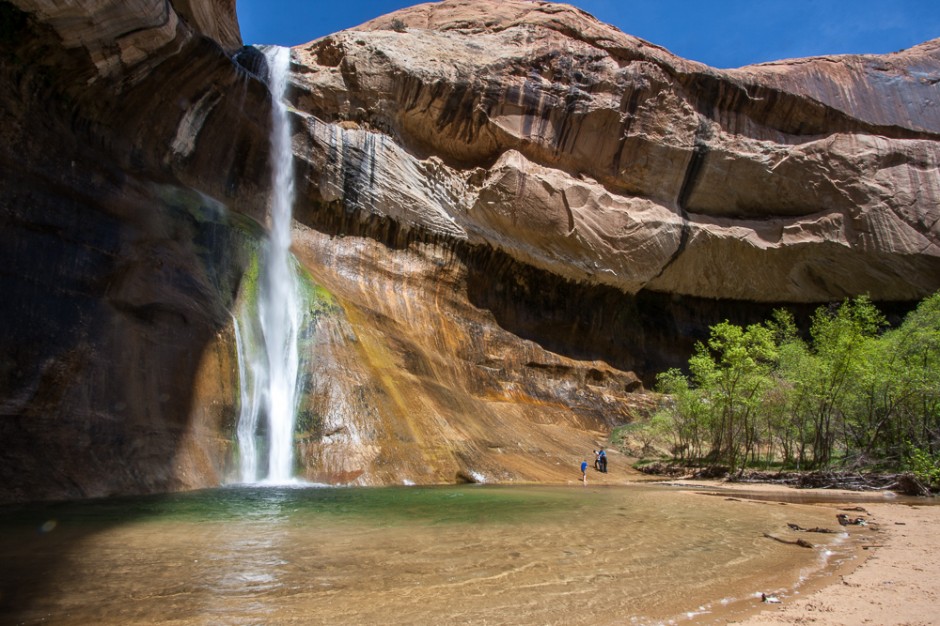IF YOU’VE DONE ANY RESEARCH into visiting Southern Utah, you’ve no doubt come across its five national parks: Arches, Canyonlands, Bryce Canyon, Capitol Reef, and Zion. Situated on the Colorado Plateau, the landscape in this part of the state is high desert, mesas, sandstone, rivers, and canyons. For me, coming from the forested mountains of British Columbia, it was like entering an alien world.
While the parks are destinations in themselves, worthy of days/weeks of exploration, there’s a lot of land just outside of them that also warrants your close attention. Over three weeks this past spring, my partner and I traversed Southern Utah from east (Moab) to west (Springdale). We hit most of the national parks, but our best memories come from outside their borders. Here’s how we explored these areas.
1. Mountain biking Moab’s lesser-known trails
I know. Biking in Moab isn’t exactly under-the-radar, but it’s important to point out the variety of biking available to all skill levels. It’s not just for the hard-cores heading to the world-famous Slickrock Trail. That one was beyond us (as it is many people). But we did get on our bikes and onto some really fun single-track that fell into the beginner-to-intermediate range — cross-country, not downhill.
The Bar M Loop is north of Moab and great for a quick ride. There are some mildly technical sections, but overall can be just fun and cruisy.
Biking in Dead Horse Point State Park was also a highlight for us (video above). On their Intrepid Trail system they have riding for every skill level, and the views off of vertical cliffs into the canyons below are staggering. For more mountain biking ideas in and around Moab, DiscoverMoab is a great resource.
2. Canyoneering outside Zion
I’d briefly heard about canyoneering before I went to Utah, but it was still unclear to me what it was all about. After trying it out, I realized the answer is twofold: A) exploring, and B) problem-solving. Because canyons are always changing (e.g., from flash floods carrying and depositing debris), even the guides are always a little unsure of what to expect. This is part of the excitement.
There are different levels of canyoneering, ranging from basic hiking to routes requiring very technical skills and knowledge of ropes and climbing. Some super popular options in Southern Utah include hiking the Narrows in Zion and doing a guided tour of Fiery Furnace in Arches (this one requires pre-booking). But there are so many canyons to explore, and a plethora of guide companies to show you the way, even if you have no experience.
The video above was shot in a canyon outside of Zion that was classed 3BII (rope required for single pitch rappels (3); a bit of running water/pools (B); half-day exploration (II)). Our guide, Bailey Schofield from Zion Adventure Company, really pushed us to figure things out for ourselves, and allowed us to make the decisions (although she’d be quick to point out potential dangers). It was a very empowering experience.
3. Rock climbing near Moab
There’s a famous rock climbing area near Moab called Indian Creek. You may have seen pictures of it: a polished, smooth red wall with a big crack and someone wedging into it (for example). This is for experienced climbers with a lot of technical knowledge.
But you don’t necessarily need to have rock climbed before to get to some amazing places in the area. There are lots of guide companies that will take you where you’re comfortable. We chose a different area near Moab, and picked out a sandstone tower called Ancient Art. While we have plenty of climbing experience, our guide, Nate Sydnor of Moab Desert Adventures, told us he’d previously guided the climb with someone who had zero experience.
Not to say it’s an easy climb — it’s not. It’s actually petrifying, as you can see in the video above, but if you’re at an appropriate physical level, have the right fortitude and the right guide, it’s possible to climb a route like this and make it your first ever.
4. Rafting the Colorado
I’d been rafting a few times before in British Columbia, but seeing the desert landscape from the water was an experience I really wanted to have. We did a half-day trip with Moab Adventure Center (you can do full- and even multi-day trips as well) on the Colorado River just outside of Moab.
In early April, the section we hit was mostly a gentle paddle down the river, taking in the immense red cliffs and listening to interpretive stories from our guide, but we did get to paddle through some bumpy sections, getting a good splash now and then and some adrenaline pumping. As you can see from the video, hopping into the water for a swim is also an excellent way to cool off from the intense sun.
5. Hiking in Grand Staircase-Escalante National Monument
Whenever I visit state and national parks in the US, it always dumbfounds me how many people don’t get out of their cars to enjoy a hike in nature. Even at peak visitor times, getting away from the parking lot is a great way to escape the crowds.
Hiking in the desert is such a different experience from hiking in the mountains of British Columbia. It’s amazing to consider the plant and animal life that thrive in such harsh conditions, and to get up close and personal with the unbelievable geological formations.
It would be a monumental exercise to list all the potential hikes in Southern Utah. Besides some of the trails in the national parks (like Delicate Arch in Arches and Angel’s Landing in Zion), one of my favourites was Lower Calf Creek Falls. The trailhead for this hike is located at the Calf Creek Campground in Grand Staircase-Escalante National Monument, about halfway between the towns of Boulder and Escalante along the gorgeously scenic State Route 12. It’s one of the hikes featured in the video above.



